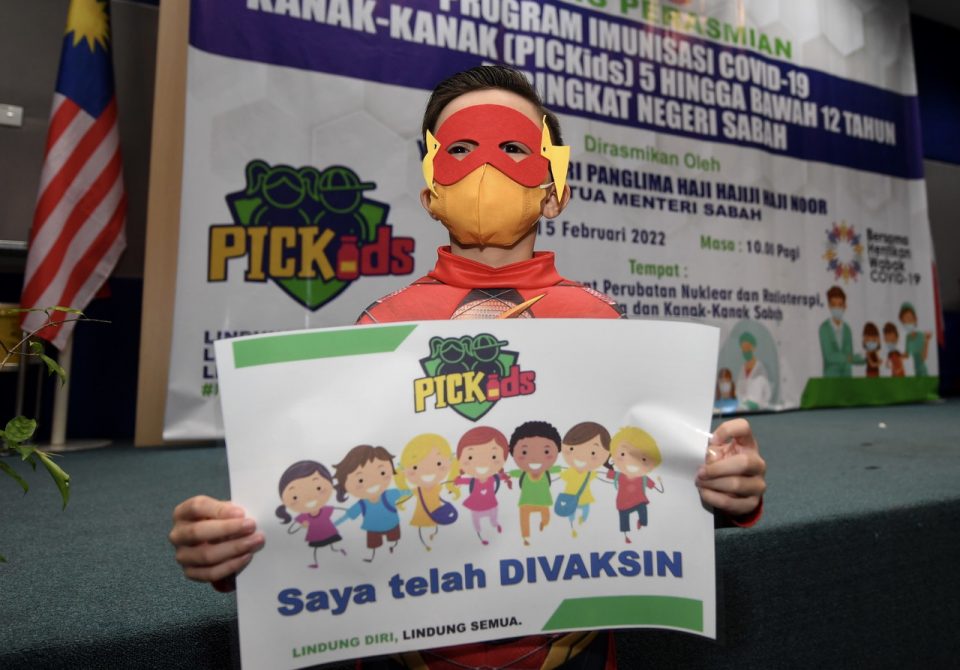KUALA LUMPUR, April 27 — A total of 761,309 children aged between five and 11 or 21.4 per cent of the population have been fully vaccinated under the National Covid-19 Immunisation Programme for Children (PICKids) as of yesterday.
Based on the CovidNow website, a total of 1,504,066 children in the same group, or 42.3 per cent, have received at least one dose of the vaccine.
For adolescents aged between 12 and 17, a total of 2,889,620 individuals or 92.9 per cent of those in the age group in the country have completed the vaccination, while 2,988,492 individuals or 96.1 per cent have received at least one dose of the vaccine.
As for adults, a total of 16,020,386 individuals or 68.1 per cent of their population have received the booster shot, while 22,965,472 or 97.6 per cent have completed the vaccination and 23,242,030 or 98.8 per cent have received at least one dose.
A total of 34,376 doses of vaccine were dispensed yesterday, comprising 6,906 for the first dose, 22,782 for the second dose and 4,688 for the booster, bringing the cumulative number of vaccine doses administered under the National Covid-19 Immunisation Programme (PICK) to 70,158,087.
Meanwhile, according to the Health Ministry’s GitHub portal, 13 deaths due to Covid-19 were reported in the country yesterday, with Selangor and Kuala Lumpur recording the highest at three cases each, followed by Kedah and Perak with two cases each while Melaka, Pahang and Penang with one each.
— Bernama





